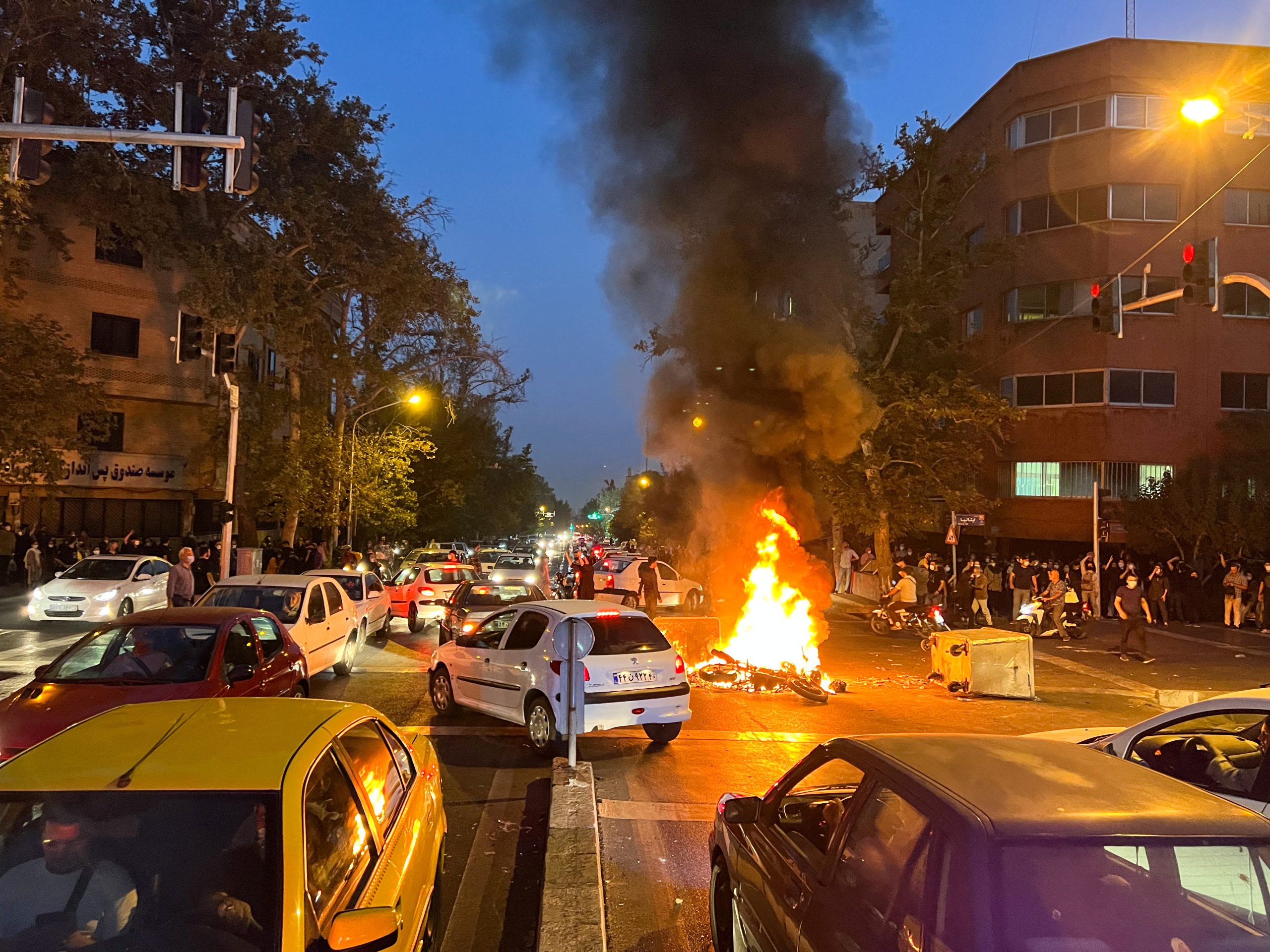
[elfsight_social_share_buttons id=”1″]
Iranian authorities said three people including a member of the security forces had been killed on Tuesday during unrest sweeping the country, as anger at the death of a woman in the custody of the morality police fuelled protests for a fifth day.
Official sources now say a total of seven people have been killed since protests erupted on Saturday over the death of Mahsa Amini, a 22-year-old from Iranian Kurdistan who died last week after being arrested in Tehran for “unsuitable attire”.
However, reports from Kurdish rights group Hengaw indicate a larger toll: it said three protesters were killed on Tuesday by security forces in or near Kurdish areas, where the unrest has been particularly intense and deadly.
There was no official confirmation of those deaths. Officials have denied that security forces have killed protesters.
Hengaw also said access to the internet had been cut in the Kurdistan province – a move that would hinder videos being shared from a region where the authorities have previously suppressed unrest by the Kurdish minority.
The minister of communications said he had been misquoted after news outlets cited him as saying the authorities might disrupt internet services for security reasons.
Amini’s death has unleashed anger over issues including freedoms in the Islamic Republic and an economy reeling from sanctions. Women have waved and burnt their veils during protests, with some cutting their hair in public.
After beginning on Saturday at Amini’s funeral in the Kurdish region, protests have engulfed much of the country, prompting confrontations as security forces have sought to suppress them.
Supreme Leader Ayatollah Ali Khamenei did not mention the protests – some of Iran‘s worst unrest since street clashes last year over water shortages – during a speech on Wednesday commemorating the 1980-88 Iran-Iraq war.
A top Khamenei aide paid condolences to Amini’s family this week, promising to follow up on the case and saying the Supreme Leader was affected and pained by her death.
The official IRNA news agency said a “police assistant” died from injuries on Tuesday in the southern city of Shiraz.
“Some people clashed with police officers and as a result one of the police assistants was killed. In this incident, four other police officers were injured,” IRNA said. An official quoted by IRNA said 15 protesters were arrested in Shiraz.
In Kermanshah, the city prosecutor said two people had been killed on Tuesday in riots. “We are certain this was done by anti-revolutionary elements because the victims were killed by weapons not used by the security apparatus,” the semi-official Fars news agency cited prosecutor Shahram Karami as saying.
The Kurdistan police chief, in comments to the semi-official Tasnim news agency on Wednesday, confirmed four deaths earlier this week in the Kurdistan province. He said they were shot with a type of bullet not used by the security forces, saying “gangs” wanted to blame police and security officials.
Hengaw said a total of 450 people had been injured in addition to the seven Kurdish protesters it said had died as a result of “direct fire” from government forces in the last four days.
Reuters could not independently confirm the casualty reports.
Amini fell into a coma and died while waiting with other women held by the morality police, who enforce strict rules in the Islamic Republic requiring women to cover their hair and wear loose-fitting clothes in public.
Her father said she had no health problems and that she suffered bruises to her legs in custody and holds the police responsible for her death. The police have denied harming her.
The U.N. Commissioner for Human Rights has called for an impartial investigation into her death and allegations of torture and ill-treatment.
‘Death to the dictator’
Videos shared on social media have also shown demonstrators damaging symbols of the Islamic Republic and confronting security forces.
One showed a man scaling the facade of the town hall in the northern city of Sari and tearing down an image of Ayatollah Ruhollah Khomeini, who founded the Islamic Republic after the 1979 revolution.
People rallied again on Wednesday in Tehran, with hundreds shouting “death to the dictator” at Tehran University.
Reuters could not verify the authenticity of the videos.
State media and officials have depicted the unrest as riots by “anti-revolutionary elements”.
Members of the Basij, a militia under the umbrella of Iran‘s Revolutionary Guards, held their own rallies in Tehran on Wednesday. “The morality police is just an excuse, what they target is the regime itself,” they chanted in a video.’
Copyright 2022 Thomson/Reuters
